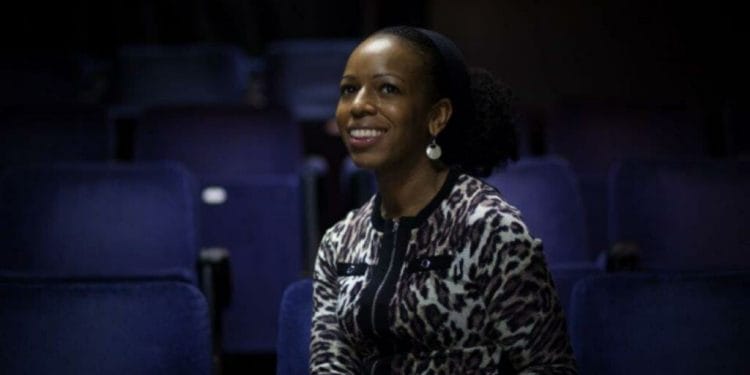Shortlisted for the Alfred Fagon Award, seeds embarks on a UK tour in 2020. Sensitively written by Mel Pennant, it tells the story of two mothers united in sorrow, unable to escape the tragedy and violence of knife crime. Together, they try to face the hardship of protecting their sons – one in life, and one in death.
seeds will play The Soho Theatre from 24th March to 11th April 2020.
Your play, seeds is coming to Soho Theatre following a tour, what can you tell us about it?
It’s a play about the lengths two mothers will go to to protect their sons; the truth they discover on their journey; and the life-changing ramifications that has for both of them.
What inspired you to write seeds?
In writing the play I was conscious that we rarely hear, in any depth, the stories of the families of people involved in tragic events and yet as a society we often judge them. I wanted to explore those stories through two mothers on either side of such an event and in doing so explore the very essence of motherhood. Those two women have a conversation that couldn’t happen without the other. It’s this one opportunity to really dig deep and explore the depth of their despair and longing and how they define themselves in a space that has become very limiting for both of them.
Knife crime has been in the news too often recently, how much research did you have to do when writing the play?
My first fully produced play, “No Rhyme” which was shown in 2013 was about a knife crime that took place in a club on New Year’s Eve. That play was partly informed by my engagement with young people in some school visits I did. Knife crime is very much in the public discourse at the moment, but I also think that we have become immune to it and that may be because assumptions are made – its’ about a certain type of young person or demographic. Seeds seeks to challenge that – it gives names and faces to the boys and mothers involved in the story and shows their lives beyond the tragedy itself. It also illustrates the dangers of putting young people into the boxes mentioned above and the dangers of a discourse that starts to suggest that some lives are worth less than others.
It focusses on two mothers, why were you keen to explore that aspect of knife crime?
Because it’s families/ parents/mothers who are left to deal with the aftermath. When the headlines are over, they are the ones left to deal with the reality for the days, weeks, years and decades to come. I wanted to explore that reality.
Why do you think it’s important this play is seen outside of London?
It’s easy to say the issues the play explores are about particular types of people or demographic or places but it isn’t. The questions Seeds asks are universal – one of the fundamental questions it asks is what would you do to protect your child?
What would you say to anyone thinking of coming to see seeds?
Seeds is a story that anyone can engage with. It’s relevant to everyone. Come and be a part of the powerful journey and conversation of these two women. What comes out of that conversation is both absurd and heart-breaking.
Main Image: Mel Pennant

















